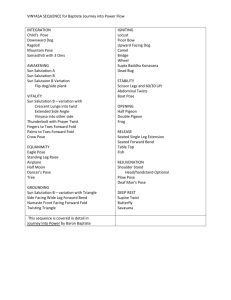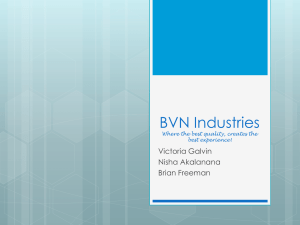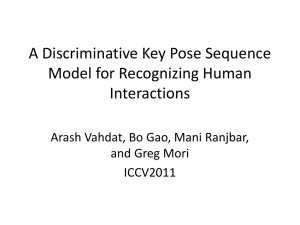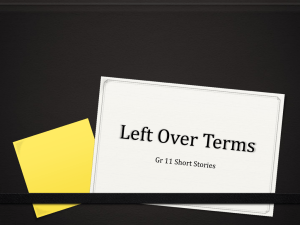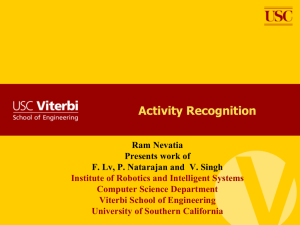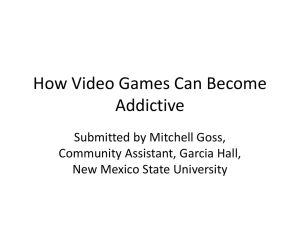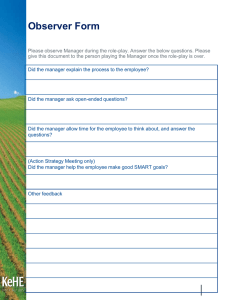Elites vs massesII
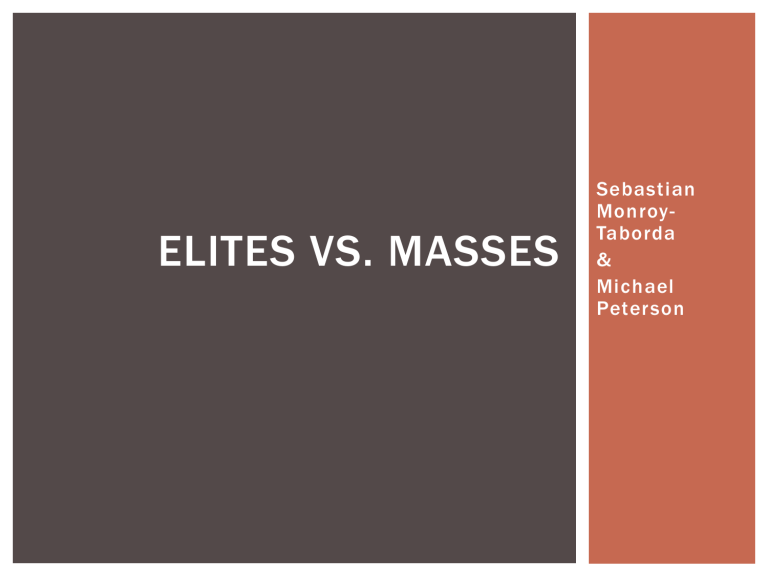
ELITES VS. MASSES
Sebastian
Monroy-
Taborda
&
Michael
Peterson
DISCUSSION QUESTIONS
Is the American public capable of playing a more active role in the public making process?
Or would greater public involvement in policy making pose risks to the quality of decision making?
IS THE AMERICAN PUBLIC CAPABLE OF PLAYING A
MORE ACTIVE ROLE IN THE PUBLIC MAKING
PROCESS?
Reasons for not playing an active role:
Apathy
Lack of Knowledge
IS THE AMERICAN PUBLIC CAPABLE OF
PLAYING A MORE ACTIVE ROLE IN THE PUBLIC
MAKING PROCESS?
2008 Cornell poll asked Americans whether they had had ever used a federal government social program
(57% said no).
Then asked if they had used or benefitted from 21 specific federal programs.
Among those who said they hadn’t received any federal assistance, 94
% said they had used at least one of the 21 programs, and the average respondent had used four.
IS THE AMERICAN PUBLIC CAPABLE OF PLAYING A
MORE ACTIVE ROLE IN THE PUBLIC MAKING
PROCESS?
Program
Percentage of beneficiaries of specific programs who report they
“have not used a government social program”
Mettler (2011)
529 or Coverdell Tax-Deferred Savings
Home Mortgage Interest Deduction
Hope or Lifetime Learning Tax Credit
Student Loans
Child and Dependent Care Tax Credit
Earned Income Tax Credit
Social Security
Pell Grants
Unemployment Insurance
Veterans Benefits (other than G.I. Bill)
G.I. Bill
Medicare
Head Start
Social Security Disability
SSI - Supplemental Secutrity Income
Medicaid
Welfare/Public Assistance
Government Subsidized Housing
Food Stamps
"No, I have not used a government social program" (%)
43.0
41.7
40.3
39.8
37.2
28.7
28.2
27.8
64.3
60.0
59.6
53.3
51.7
47.1
44.1
43.1
27.4
27.4
25.4
WOULD GREATER PUBLIC INVOLVEMENT IN POLICY
MAKING POSE RISKS TO THE QUALIT Y OF DECISION
MAKING?
Risks (Disadvantages)
“Gut reaction” or
Overreaction (e.g. Terrorism)
Friedman (2011, pp.86-87) suggest to explanations:
1.
Psychological biases that causes an overestimation
2.
Biased Information from those who provide it.
Source: The Economist (2011)
WOULD GREATER PUBLIC INVOLVEMENT IN POLICY
MAKING POSE RISKS TO THE QUALIT Y OF DECISION
MAKING?
Risks (Disadvantages – Continued)
Depth
• Fewer Issues.
• Reduced
Responsiveness.
• Inefficient?
Breath
• More Issues.
• More Responsive.
• Cost-Benefit?
WOULD GREATER PUBLIC INVOLVEMENT IN POLICY
MAKING POSE RISKS TO THE QUALIT Y OF DECISION
MAKING?
Representation
Theoretically, you vote for someone who represents a set a values
Thus, public input is mechanized into the election process
However, who is representing?
Elites?
Upper-class.
WOULD GREATER PUBLIC INVOLVEMENT IN POLICY
MAKING POSE RISKS TO THE QUALIT Y OF DECISION
MAKING?
2010 Median Income
US Median Congress Top 1%
57K 979K 16.4 Million
Data Sources:
CNN Money
Washington Post
WOULD GREATER PUBLIC INVOLVEMENT IN POLICY
MAKING POSE RISKS TO THE QUALIT Y OF DECISION
MAKING?
Source: CNN (2012)
WOULD GREATER PUBLIC INVOLVEMENT IN POLICY
MAKING POSE RISKS TO THE QUALIT Y OF DECISION
MAKING?
Advantages
Saliency
Reciprocal accountability (Representative and public)
OECD (2001) defines government-citizen relations in policy-making in three ways:
Information
Consultation
Active Participation
WOULD GREATER PUBLIC INVOLVEMENT IN POLICY
MAKING POSE RISKS TO THE QUALIT Y OF DECISION
MAKING?
Advantages (Continued)
Stakeholders
More means more ideas and points for analysis
(However, breadth vs. depth again) – need to limit stakeholders
Source: Patricia Downs Berger (2006)
DISCUSSION QUESTIONS
Is public willing to have a more active role in policy making?
Who should be involved in inputs, and where should this involvement occur to ensure sound/quality policy?
Through elections? Through community meetings? Editorials?
